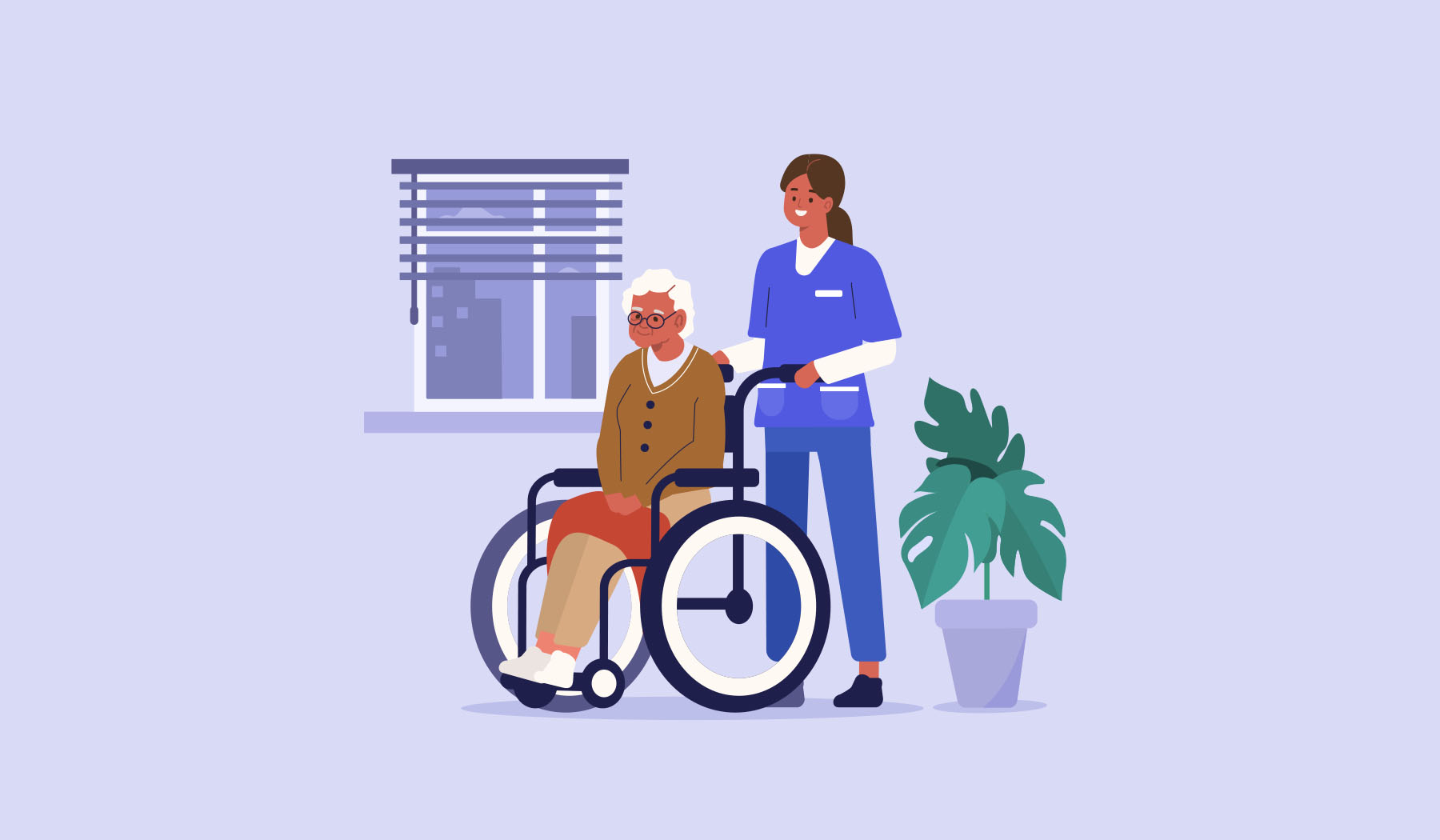Safety Protocols for Caregivers in the COVID-19 Pandemic

Post Categories
Paul
Caregiving is an essential aspect of the physical and mental health of those in need. With approximately 4.45 million caregivers in California, there is never a shortage of demand for caregiving services.
As COVID-19 continues to wreak havoc, caregivers must take various safety precautions to protect both their own health and the health of those they are providing the care for.
Let’s explore some safety protocols caregivers can take during the COVID-19 pandemic. We’ll also touch briefly on the current status of vaccine distribution in California nursing homes.
Telecare Options
Remote or telecare options may not work in all scenarios. However, when possible, opt for phone or video sessions to limit the amount of in-person interactions.
For example, if you have plans for in-person visitations three times a week, see if it’s possible to limit that to twice a week, with the other visit being a video session.
Essential vs. Non-Essential Care
Determine what type of care is essential and what is non-essential. If there are any appointments or procedures that are deemed non-essential, see if you can postpone or reduce these visits for the time being.
Make a Backup Plan
Ensure you have someone who can step in for you in case you get sick or require to self-quarantine. Make a note of all of your responsibilities, so your backup replacement can easily step in to cover for you.
Plan for Medication and Supplies
Touch base with your client’s doctor to see if you can get a few weeks’ worth of medication. Having a larger supply cuts down on trips to the pharmacy or doctor’s office, limiting the risk to you and your client. Continually monitor your client’s food and medical supplies, ensuring everything is well stocked.
Preventive Measures
The CDC has given guidance on caring for someone sick at home. Whether you’re caregiving for someone sick or not, these are generally good measures to take during the COVID-19 pandemic.
- Washing hands: Practice good hand hygiene. Wash your hands frequently, especially before meals and touching your face. Have hand sanitizers readily accessible when you don’t have access to soap and water.
- Wiping down your phone: Phones have particularly large amounts of bacteria and germs due to how much we use them. Ensure you regularly wipe down your phone with disinfecting or alcohol wipes.
- Wiping down surface areas: Other areas to wipe down include doorknobs, tables, countertops, handles, and other high-touch surfaces.
- Keeping 6 feet distance: While physical distancing with your client may be difficult due to the nature of a caregiver’s job, you should maintain physical distancing with those within the same home or facility.
- Avoid using hands: When opening doors, cabinets, or windows, try to avoid using your hands. Instead, use your foot, elbows, or knees when possible.
- Wear face masks: Wear masks with at least two or more layers made with breathable fabric. Masks should cover both your nose and mouth and fit snugly against the side of your face.
Be Aware of Client Symptoms
Constantly monitor your client for symptoms. This includes any unusual change in your client’s conditions, such as a lack of appetite, increased fatigue, or sudden confusion. Monitor specifically for COVID-19 symptoms, including:
- Fever
- Dry cough
- Sore throat
- Diarrhea
- Headache
- Loss of taste
- Loss of smell
- Aches and pains
For more serious symptoms, such as difficulty breathing, chest pain, or loss of speech or movement, you must seek medical attention immediately.
Limit Your Own Social Circle
Because you are caring for someone who may have a weakened immune system, it’s vital you minimize risk. This means limiting physical interactions with your own social circle. By limiting your own circle, you are limiting the risk of spread to your client as well as those you interact with.
Take Care of Your Own Health
Being a caregiver can be challenging in and of itself. Add on the stress of the pandemic, and it can be overwhelming. Make sure you are taking care of yourself, both physically and mentally. Eat well and exercise regularly. Whether it’s your friends, family, or colleagues, ensure you have a strong social support group you can regularly reach out to.
Status of Vaccine Distribution in California Nursing Homes
With the arrival of the Pfizer and Moderna vaccines, the State of California has begun rolling out the initial stages of its vaccination program. They are projecting to vaccinate most Californians by the summer of 2021.
Currently, the COVID-19 vaccine is being offered to healthcare workers and long-term care residents in what is known as Phase 1A of the rollout plan. Healthcare workers and residents of skilled nursing facilities, assisted living facilities, and other long-term care settings would all be considered eligible during this phase.
By the end of Phase 1A, there will be an estimated 3 million Californians vaccinated. News on the development of the COVID-19 vaccine is rapidly developing each day. Refer to your county’s COVID-19 website to keep up to date with the latest developments.
Premium Staffing Solutions for the Healthcare Industry
These are just some of the safety precautions caregivers can take to keep them and their patients safe. Stay vigilant and continually monitor the latest guidelines set forth by your county.
If you are looking for staffing solutions for your healthcare facility, we can help. Timpl partners with businesses in the healthcare industry to find staffing solutions based on their needs.
Finding the right people for the job is crucial for the success of any company. Let us help you be part of building your team with our innovative solutions.
Contact us today to learn more!


